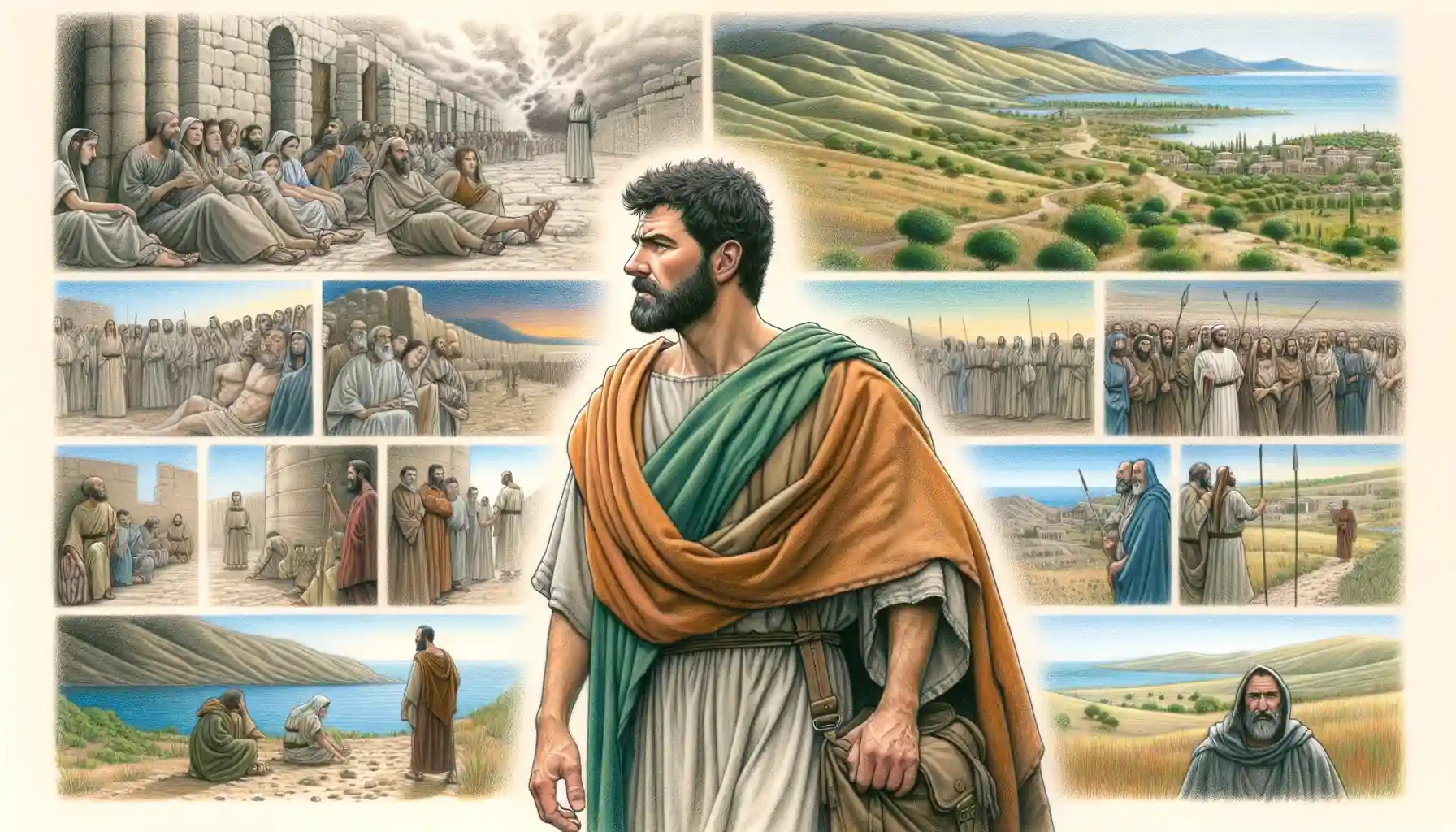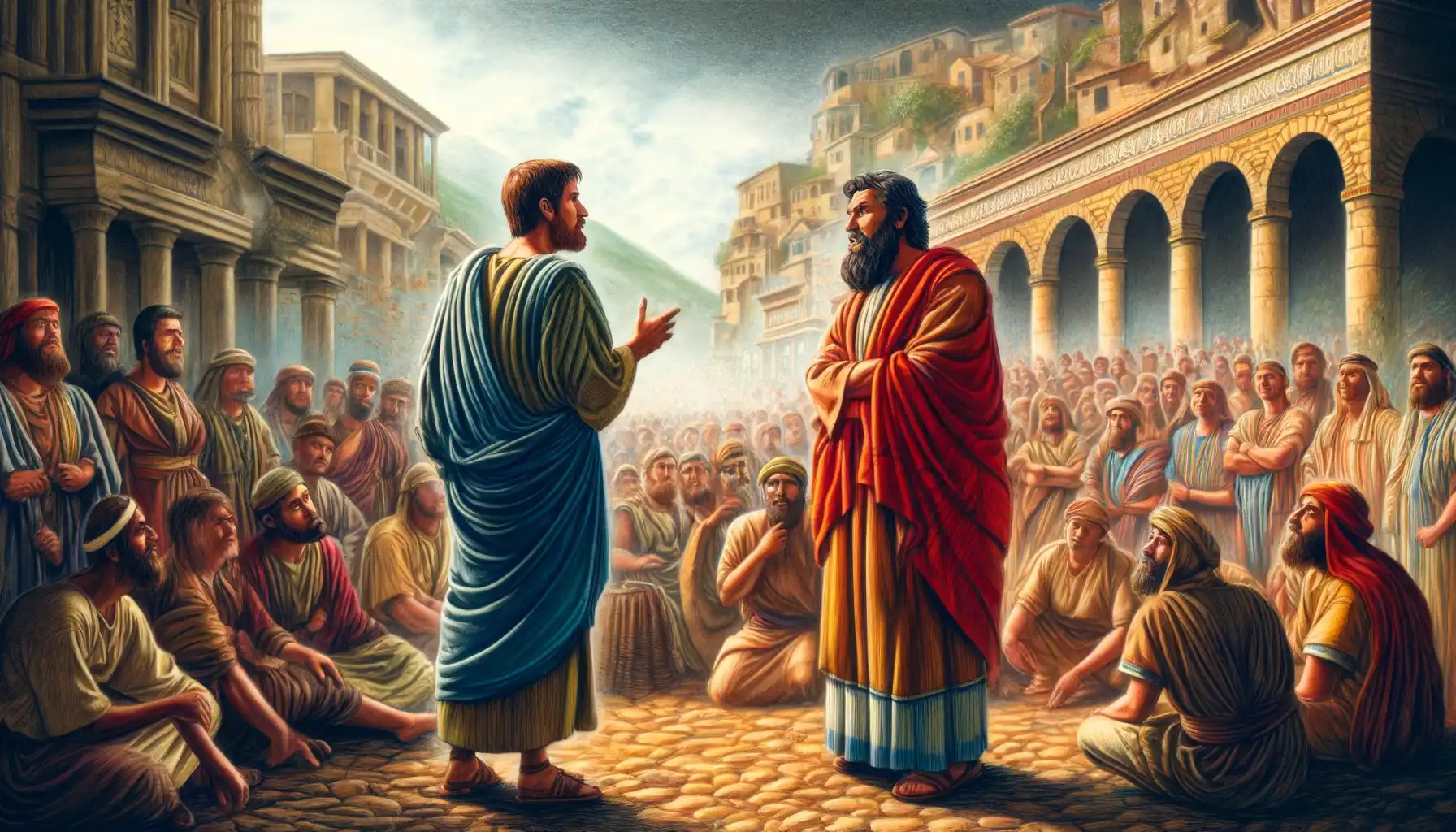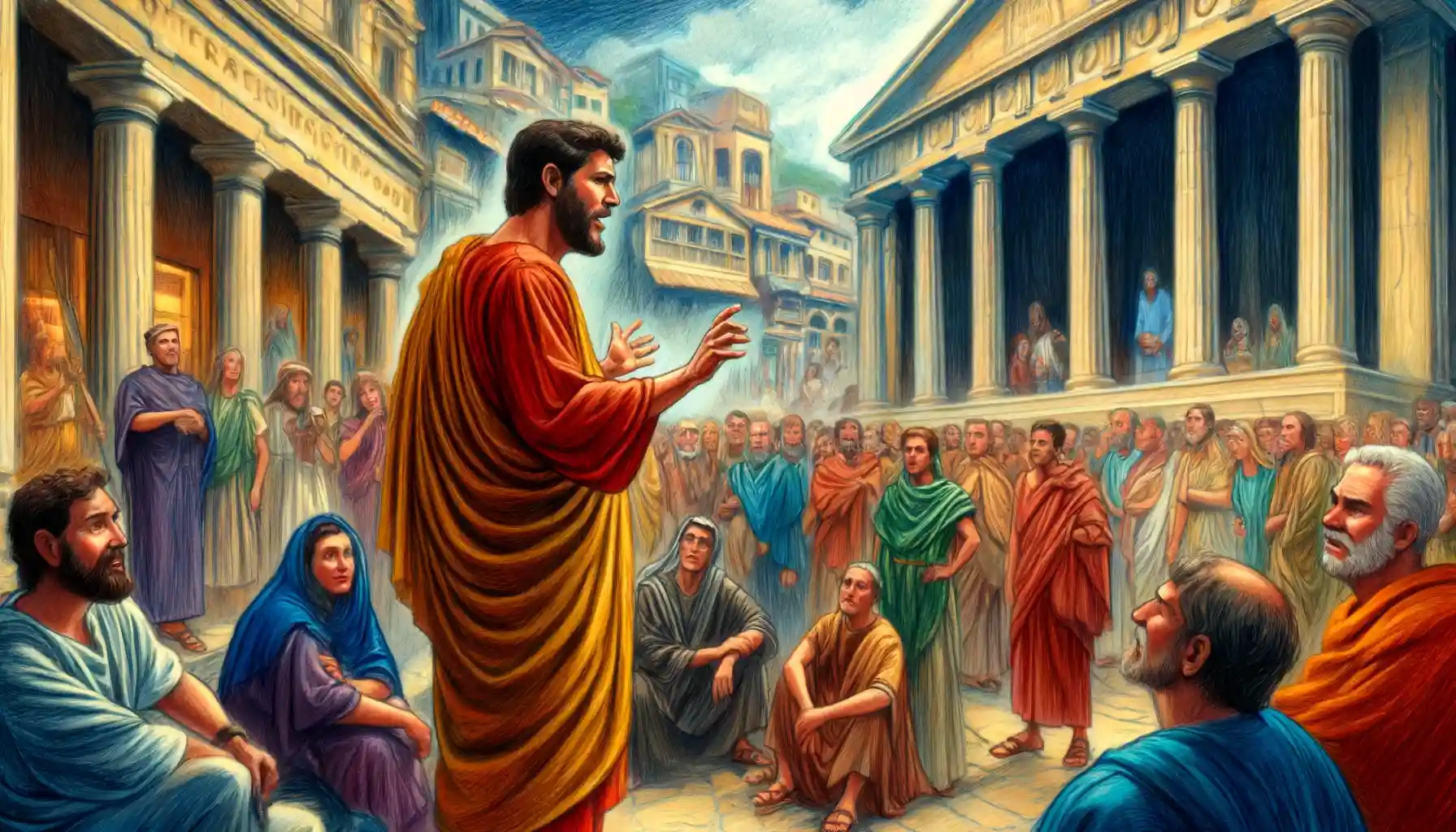Silas, a key companion of Paul on his second missionary journey, played a crucial role in spreading the Gospel, enduring imprisonment and persecution, and helping establish early Christian communities in Thessalonica, Berea, and Corinth.
The shipwreck of Paul is not just a tale of survival but a testament to Paul’s faith and God’s providence, ensuring that Paul’s missionary journey continued despite seemingly insurmountable odds.
In the Book of Titus, the Apostle Paul underscores the necessity of appointing qualified elders to maintain order and guide the faithful, emphasizing the significance of sound doctrine and good works in fostering a vibrant and steadfast Christian community.
The Book of Philippians is notable for its intimate tone and profound theological insights, offering enduring lessons on joy, unity, and the Christian life.
The Book of Galatians is fundamental in Christian theology for its clear articulation of the gospel of grace and its vigorous defense of the doctrine of justification by faith. It remains a powerful source of theological insight and ethical guidance.
The Book of 1 Corinthians remains a vital text for understanding early Christian life and the practical and theological challenges faced by emerging Christian communities.
The Book of Romans is foundational for understanding Christian doctrine, particularly Pauline theology, and remains a cornerstone for theological reflection and discourse within Christianity.
The Gospel of John remains a foundational text for Christian theology, offering a rich and deeply spiritual perspective on Jesus Christ’s identity and His teachings.
The Gospel of Luke is notable for its narrative richness, theological depth, and emphasis on the compassionate and universal nature of Jesus’ ministry.
The Gospel of Mark remains a foundational text for understanding the life and teachings of Jesus, offering insights into his profound impact and the essence of his message.










